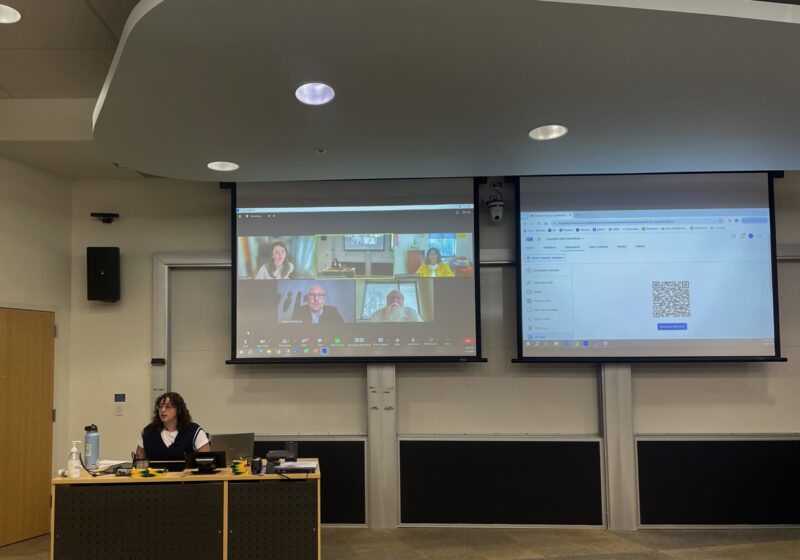Brandon Stanton is, according to Time magazine, one of the most successful people under the age of 30. His blog has millions of views every day, yet most people wouldn’t recognize him if he walked passed them on the street. He meets hundreds of strangers every year and finds out intimate details about their lives.
“Humans of New York” (HONY) was, in its early stages, a blog that no one knew about. Stanton’s creation was something he started on a whim. After being fired as a bond broker, he moved to New York to take photos with his brand new camera, which he was just learning how to use. Stanton visited UR last Friday for a talk and to demonstrate his interview skills on UR students.
When asked before his arrival in Rochester what he was planning on covering in his talk, Stanton wrote, “I’m going to cover the process behind creating and sustaining Humans of New York, including what I’ve learned about interviewing strangers on the street. I’ll tell a few jokes. Then I’ll most likely reveal major secrets of the universe and hand over the keys to boundless intellectual success. Then I’ll take questions.”
On Friday night, Stanton didn’t have to say a word to win over the crowd. All of the people in the audience had seen the blog and at least a third were obsessed with it. When Stanton asked for volunteers, high-pitched screams erupted from possible interviewees.
Stanton came off as a very real, down to earth guy. Dressed in casual clothing, he plodded on stage and took a seat on the stool like any normal human of New York. After a few jokes about Rochester’s terrible weather, he started talking about his blog. But it wasn’t long before Stanton stopped, took a good look at the crowd, and said, “I am really nervous right now.”
To relieve some of his nerves, he brought students on stage to demonstrate how he manages to draw great captions out of random strangers on the street. The conversations that ensued were interesting but probably not worthy of the HONY blog. That being said, the newly wed couple he brought on stage was adorable and entertaining. Hearing about their twerking practice had the audience and Stanton in stitches.
After the students left the stage and Stanton was feeling a little more relaxed, he began to talk about his process as a photographer. There is a certain way, in his opinion, to approach a stranger so they don’t run away. They have to be alone. They must be approached from the front and in a non-confrontational way. And not everyone agrees to let him take a picture. But with three and a half years of experience now under his belt, he’s definitely gotten better at it. He estimates he has approached over ten thousand people on the streets of New York. That’s enough education for anybody.
Stanton said he doesn’t go into an interview looking for an opinion or a statement but rather a story. “It’s less about how I can take a great photo and more how I can get a great story,” he said. But lets be real, his photos are pretty fantastic.
Stanton wfinished his talk by offering a little advice to the future artists of the audience. For someone so young, he had some decent, non-cliche advice. Some of his tips included reading biographies and getting out into the world, not sitting at home waiting for the big idea to hit. He also encouraged people to not rate themselves based on the number of fans they have or likes they get on Facebook. Base your level of satisfaction on something you can control such as continuing to create great art and tell stories.
In the grand scheme of artists, Stanton is a pretty normal guy who just happens to have a huge blog, a book on the New York Times Best Sellers List, and another book coming out soon.
Sanguinetti is a member of
the class of 2015.






